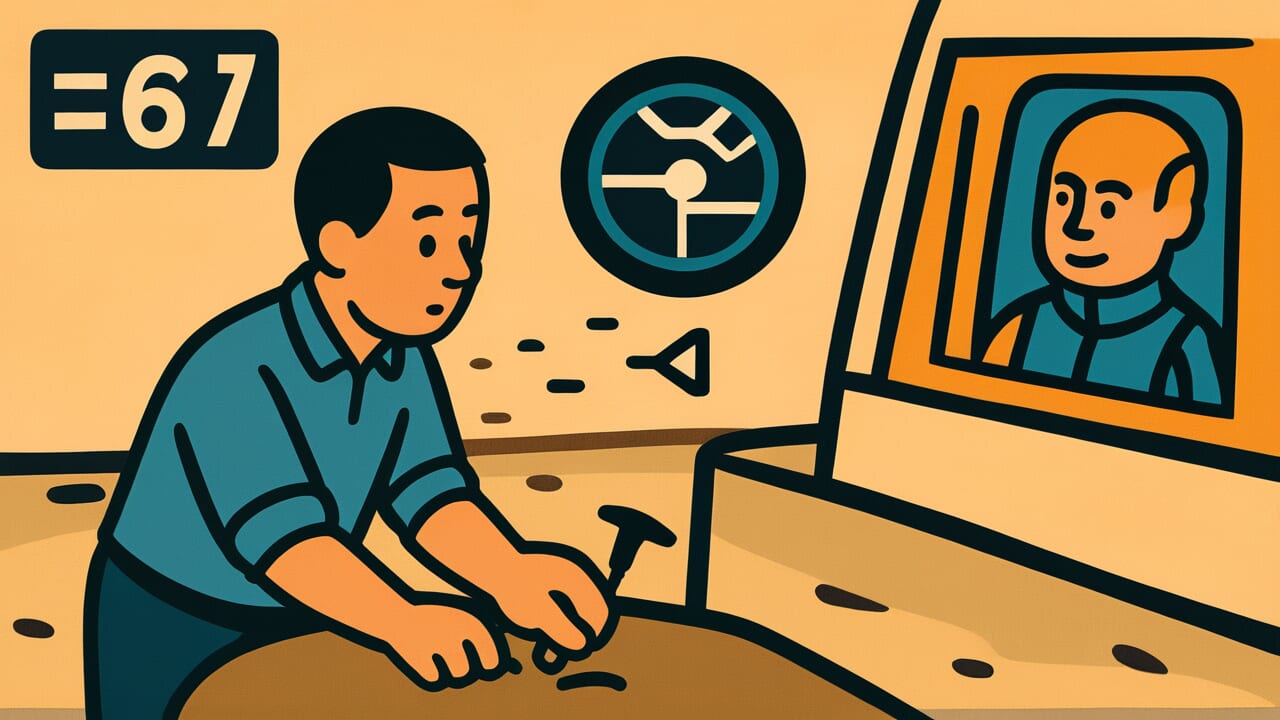How to Read “The shallow cannot measure the deep”
Asa wa yo ni fuka wo hakaru ni tarazu
Meaning of “The shallow cannot measure the deep”
This proverb means that people with shallow knowledge or experience cannot properly understand deep truths or principles.
Knowledge and understanding exist in layers of depth. Someone who only grasps the surface cannot judge or evaluate matters at a deeper level.
This saying is used when inexperienced people criticize experts. It also applies when someone with little experience casually discusses complex problems.
People also use it as self-reflection. It reminds us to recognize our own shallow understanding and maintain a humble attitude toward learning.
Today, this proverb serves as a warning. Many people try to judge everything based only on fragments of information they find online.
Origin and Etymology
This proverb was likely influenced by ancient Chinese philosophy, especially the teachings of Zhuangzi.
Zhuangzi contains a famous saying: “A frog in a well cannot discuss the ocean.” It teaches that those in a narrow world cannot understand the wider world.
“The shallow cannot measure the deep” has a similar structure. It expresses that those with shallow knowledge cannot measure deep principles.
The expression “yo ni” is a classical phrase meaning “with” or “by means of.” The structure literally means “with shallow knowledge, one cannot measure deep principles.”
This saying strongly reflects Eastern philosophy, which emphasizes the importance of gradual understanding in learning and spiritual practice.
In Japan, similar expressions appear in educational texts from the Edo period. They were used as warnings for those pursuing learning.
The proverb has been passed down as a teaching about the essence of learning. It reminds us that knowledge has stages, and those at shallow stages cannot grasp the true meaning of deeper stages.
Usage Examples
- As a beginner, the shallow cannot measure the deep—I still don’t understand the true essence of my teacher’s technique
- Criticizing experts after reading just a few books is a case of the shallow cannot measure the deep
Universal Wisdom
This proverb has been passed down through generations because it perfectly captures a fundamental limit of human perception.
We can only see the world through the lens of what we already know. Worse yet, when our knowledge is shallow, we cannot even recognize how shallow it is.
This is called “the ignorance of ignorance”—a fundamental aspect of human nature.
Someone at the foot of a mountain cannot imagine how magnificent the view from the summit is. They might even believe the scenery they see is all there is.
Our ancestors deeply understood this structural problem in human cognition. That’s why they taught that humility is essential to learning.
Recognizing the shallowness of our own understanding is the first step toward deeper understanding.
This proverb teaches both the joy of gaining knowledge and the importance of always being aware of our limitations.
True wisdom begins with knowing how much we don’t know. This universal truth continues to be conveyed through these simple words.
When AI Hears This
Why can’t people with shallow knowledge properly evaluate those with deep knowledge?
The Dunning-Kruger effect research reveals a crucial fact: “the ability to evaluate” and “the ability to perform” are the same thing.
In other words, people who struggle with logical thinking cannot judge the excellence of others’ logical thinking either. It’s like a chess beginner who cannot understand the brilliance of a professional’s move.
Even more interesting is the reversal phenomenon where less capable people have higher self-assessments.
In one experiment, people who scored in the bottom 12 percent estimated they were in the top 38 percent. They couldn’t even recognize the difficulty of the problems, so they mistakenly believed they solved them easily.
Meanwhile, truly capable people recognize the vastness of what they don’t know. This makes them more humble.
The essence of this proverb lies in its one-way nature: shallow people cannot measure deep people.
Deep people can understand shallow thinking, but the reverse doesn’t work. This is called information asymmetry.
Looking up at the sky from the bottom of a well, you cannot measure the sky’s vastness. But looking down at a well from the sky, its depth is immediately obvious.
Differences in cognitive ability create this kind of irreversible relationship.
Lessons for Today
This proverb teaches you the importance of humble, continuous learning.
In our modern information-rich society, everyone can easily access knowledge. However, there’s a huge difference between information found through a search and deep understanding.
What matters is having the courage to admit when your understanding is still at a shallow stage.
This isn’t something to be ashamed of. Rather, knowing your limits is the key that opens the door to real growth.
Listen sincerely to experts’ opinions. Maintain an attitude of learning from experienced people.
This teaching also helps when evaluating others. In fields where your understanding is shallow, you need the caution not to make hasty judgments.
The honesty to admit “I don’t know” when you don’t know something increases your trustworthiness.
The depth of knowledge has no end. That’s why the journey of learning is a lifelong adventure.
Move forward one step at a time, so that tomorrow’s you understands a little more deeply than today’s you.



Comments